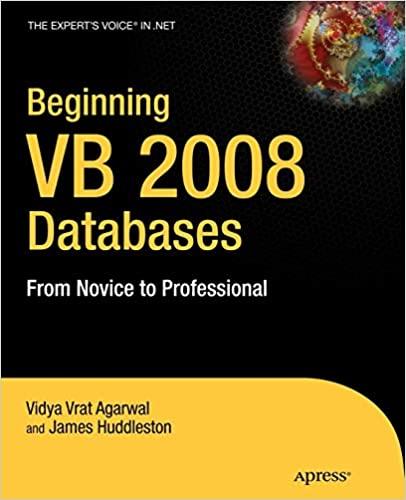Answered step by step
Verified Expert Solution
Question
1 Approved Answer
For each of the Implementation Practice lab components, read their specifications carefully. Then, for each of the operations below, match it to the expected behaviour.
For each of the Implementation Practice lab components, read their specifications carefully. Then, for each of the operations below, match it to the expected behaviour. If the expected behaviour is an exception, choose the appropriate exception. If the operation is "void" select what the strand would be after the operation.
Note that if you see an ACGU this represents an arbitrary RNAStrand. If you see ACGT this represents an arbitrary DNAStrand.
Question options:
AGaddX returns
AGaddX returns
G C Areverse updates "this" NAStrand to
AGaddC returns
splice updates "this" NAStrand to
C G Areverse updates "this" NAStrand to
ACGUisPairAU returns
C G Areverse updates "this" NAStrand to
A CspliceG U updates "this" NAStrand to
AGaddC returns
G A Creverse updates "this" NAStrand to
ACGUisPairTA returns
AGaddC returns
ACGUisPairGC returns
A C G UspliceA C G T updates "this" NAStrand to
A
C
G
empty strand
IndexOutOfBoundsException
IllegalArgumentException
A C G U
A C G T
true
false
C A G
A C G
A G C
G A C
C G A
Step by Step Solution
There are 3 Steps involved in it
Step: 1

Get Instant Access to Expert-Tailored Solutions
See step-by-step solutions with expert insights and AI powered tools for academic success
Step: 2

Step: 3

Ace Your Homework with AI
Get the answers you need in no time with our AI-driven, step-by-step assistance
Get Started


